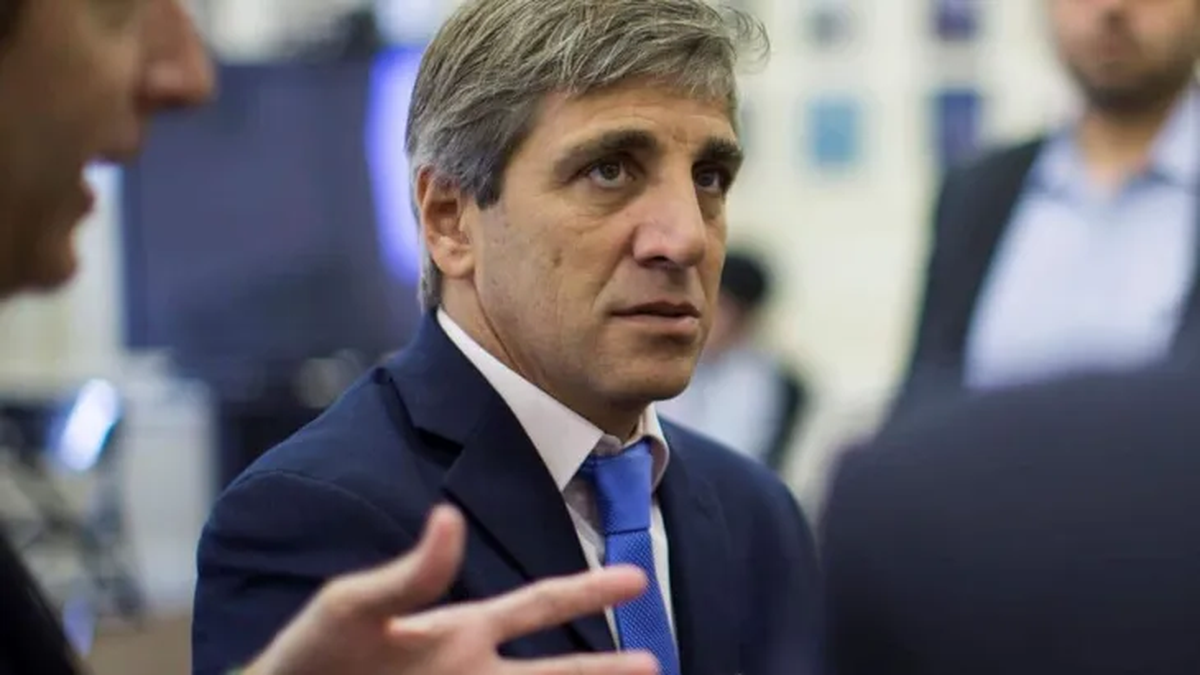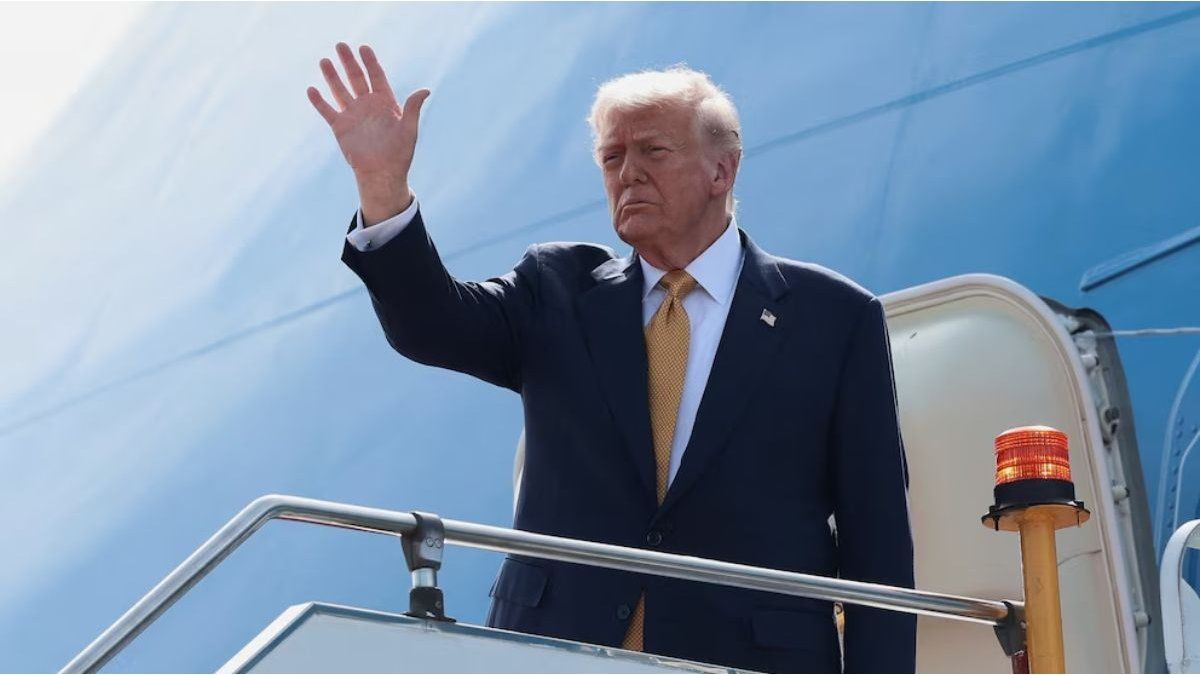The Minister of Economy blamed the media for spreading erroneous information, but forgot to clarify what the incorrect data was and to provide more details about money laundering.c
Likewise, “relatives of public officials” are excluded, including spouses, ascendants, descendants and former spouses, “who were spouses during the time in which said subjects served in the detailed positions.”
The Minister of Economy, Luis “Toto” Caputo, attempted to clear up the confusion generated around the interpretation of two crucial issues: money laundering and the proposed modifications to the personal property tax. In recent statements on his social networksCaputo noted that the media has wrongly misrepresented both issueswhich forced him to the need to clarify these points, in his words, “in the coming days.”
The content you want to access is exclusive to subscribers.
The head of the Treasury Palace said: “The newspapers have incorrectly disseminated information about money laundering and personal assets. We will soon provide detailed clarifications to avoid confusion“.


Caputo’s words are the response to a publication by economist Germán Fermo, who raised certain doubts about the intention of inviting Argentines to participate in another money laundering. without eliminating taxes on personal property and financial income, questioning the logic of maintaining both taxes, which, in his opinion, do not generate significant income.
Embed
Hello Sherman. The newspapers have incorrectly raised the issue of money laundering and personal property. We are going to clarify it to avoid misunderstandings. Slds https://t.co/F7tPvT1k5T
— totocaputo (@LuisCaputoAR) December 28, 2023
It is important to mention that the money laundering project and the modifications to the Income Tax were an integral part of the Omnibus Law, which was sent to the National Congress by the Executive Branch the previous day.
Caputo, in his statements, It did not delve into other points and, therefore, the erroneous interpretations of the press referred to by the head of the Palacio de Hacienda were not detailed..
Regarding money laundering, the bill contemplates the exclusion of “public officials” who have performed their duties from December 30, inclusive, until the date of entry into force of the regulations.
Others excluded are:
- President and vice president of the Nation, governor, vice governor, head or vice head of government of the Autonomous City of Buenos Aires or municipal mayor.
- Senator or national, provincial or deputy of the Autonomous City of Buenos Aires, or municipal councilor, or Parliamentarian of Mercosur;
- Magistrate of the national, provincial, municipal or Autonomous City of Buenos Aires Judiciary;
- Magistrate of the national, provincial, municipal or Autonomous City of Buenos Aires Public Ministry;
- Ombudsman or deputy to the national, provincial, municipal or Autonomous City of Buenos Aires Ombudsman;
- Chief of the Cabinet of Ministers, minister, secretary or undersecretary of the national, provincial, municipal Executive Branch or of the Autonomous City of Buenos Aires;
- Federal, provincial, municipal or auditor of the Autonomous City of Buenos Aires;
- General Trustee of the Nation, deputy general trustee of the General Audit Office, president or general auditor of the General Audit Office, superior authority of the regulatory entities and other bodies that make up the control systems of the national, provincial, municipal or public sector. Autonomous City of Buenos Aires, and the members of administrative jurisdictional organizations at the three levels of government;
- Member of the Judicial Council or the trial jury;
- Ambassador, consul or official posted on a permanent official mission abroad;
- Active personnel of the armed security forces, of the Argentine Federal Police, of the Airport Security Police, of the National Gendarmerie, of the Argentine Naval Prefecture or of the Federal Penitentiary Service, with a rank of no less than colonel or equivalent, personnel of the provincial, municipal or Autonomous City of Buenos Aires Police with a category not lower than that of Commissioner, or lower category personnel, in charge of the Police Station;
- Rector, dean or secretary of the national, provincial, municipal universities or of the Autonomous City of Buenos Aires;
- Official or employee with a category or function not lower than that of director or equivalent, who provides service in the national, provincial, municipal Public Administration or of the Autonomous City of Buenos Aires, centralized or decentralized, autonomous entities, banks and financial entities of the official system, social works administered by the State, State companies, State companies or personnel with a similar category or function and in other public sector entities;
- Collaborating official of the federal, provincial, municipal or Autonomous City of Buenos Aires auditor, with a category or function not lower than that of director or equivalent;
- Staff of the General Audit Office, the General Auditor’s Office, regulatory entities and other bodies that make up the control systems of the national, provincial, municipal or Autonomous City of Buenos Aires public sector, and the members of administrative jurisdictional organizations at the three levels of governments, with a rank no lower than that of director or equivalent;
- Public official or employee in charge of granting administrative authorizations for the exercise of any activity, as well as any public official or employee in charge of controlling the operation of said activities or exercising any other control by virtue of a police power;
- Official who is part of the control bodies of privatized public services, with a category no lower than that of director;
- Personnel who work in the national, provincial, municipal or Legislative Branch of the Autonomous City of Buenos Aires, with a category no lower than that of director;
- Personnel who serve in the Judiciary or in the national, provincial, municipal or Autonomous City of Buenos Aires Public Ministry, with a category not lower than secretary or equivalent;
- Public official or employee who is part of commissions for awarding tenders, purchasing or receiving goods, or participates in making decisions about tenders or purchases at any of the three levels of government;
- Public official whose function is to administer public or private assets, or control or supervise public revenues of any nature;
- Director or administrator of entities subject to the external control of the National Congress, in accordance with the provisions of article 120 of Law No. 24,156;
- Personnel of intelligence agencies, without distinction of grades, whether their status is permanent or temporary.
- Likewise, “relatives of public officials” are excluded, including spouses, ascendants, descendants and former spouses, “who were spouses during the time in which said subjects served in the detailed positions.”
Source: Ambito




